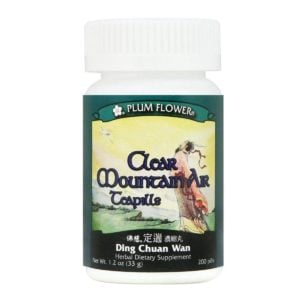Your cart is currently empty!
Bai Guo
English Name: ginkgo nut, ginkgo seed
Literal Translation: “white fruit seed”
Pharmaceutical Name: Semen Ginkgo
Medica Category: Cough- and Wheezing- Relieving Herbs
Properties: Bai Guo enters the Lung channel; it is sweet, bitter, and astringent in nature and neutral in temperature.
What is Bai Guo?:
The Chinese Herb Bai Guo is the dried seed from the fruit of the ginkgo tree (Ginkgo biloba L.), a large tree (that often grows to over 100 ft. tall) with fan-shaped leaves that change color to a deep golden yellow in the autumn. After the tree has matured (which takes about twenty years), the females produce fleshy, brownish-orange fruits about the size of a cherry that have a distinctive odor to them (some might say they “stink”). The seeds within these fruits are what become the Chinese herb Bai Guo. First the fruits are harvested (in the autumn) and the flesh removed; then the outer seed covering is removed and the inner seeds are dried for use as medicine.
Extract of the leaves of Ginkgo Bilboa is often sold over the counter as dietary supplement to aid memory and cognition, high blood pressure, tinnitus, and other health concerns. Bai Guo is something different—its uses in TCM are discussed below.
Traditional Chinese Medicine (TCM) Therapeutic Actions of Bai Guo:
Bai Guo arrests wheezing and dispels phlegm and is used most commonly in cases of chronic respiratory disorders with Lung qi deficiency at the root. These disorders of the Lung are characterized by dyspnea, wheezing, asthma, chronic cough, and loss of voice.
Bai Guo can also be used to help address excess conditions when combined with the proper heat clearing and phlegm resolving herbs (e.g. cough from external pathenogenic influence or from excess phlegm accumulation/stagnation).
Bai Guo dispel dampness and restrains the leakage of body fluids to address spermatorrhea, leukorrhea, and polyuria (w/cloudy urine).
–safety notes:
Bai Guo is slightly toxic and so large doses and long-term use should be avoided.
Bai Guo stimulates contractions of the uterus and should be used with caution/under supervision during pregnancy.


